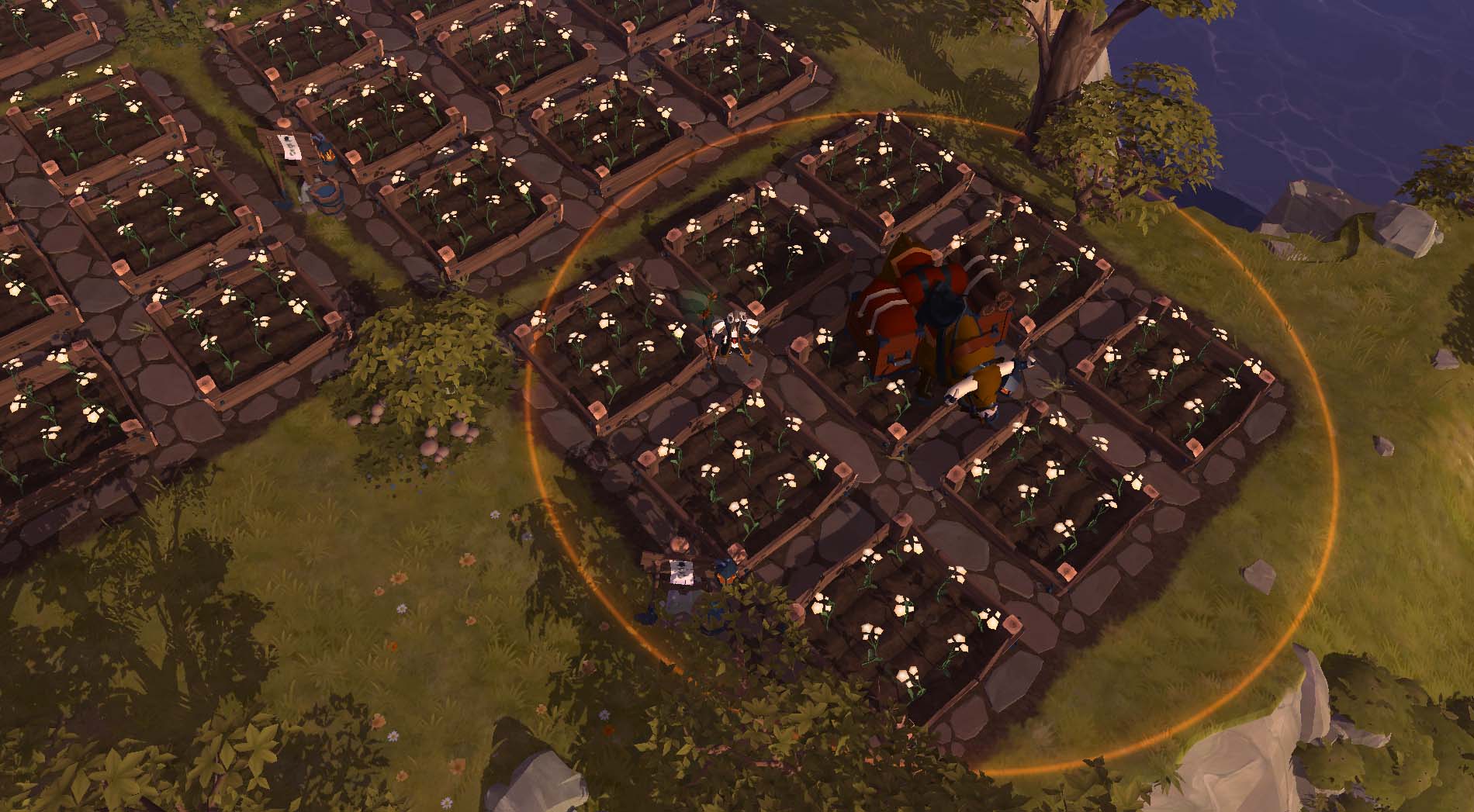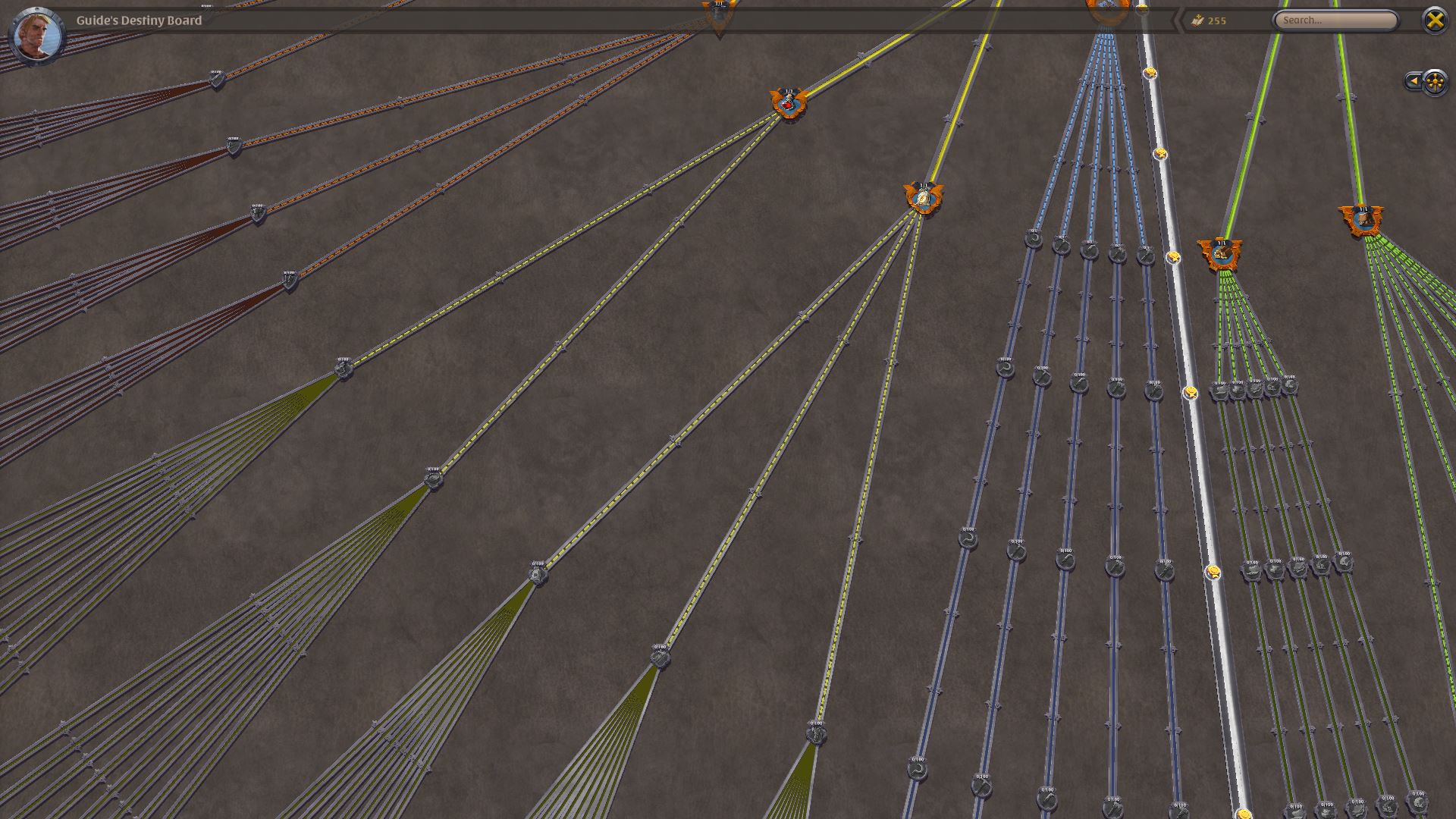Albion Online Farming Guide
Farming is a crucial aspect of Albion Online's economy. It involves growing crops and herbs that are essential for various activities such as feeding animals, cooking, and potion brewing.
Farmers play a vital role in the game's economy by providing essential food supplies required for different tasks. Whether it's nurturing baby animals, crafting powerful mounts, or creating potions for combat and gathering, the products from farming are indispensable. Moreover, guilds that own territories rely on farmers to maintain a steady food supply. Without proficient farmers, guilds would need to purchase food items, which can be quite costly. As a farmer, you can produce a variety of food items such as carrots, soups, and other ingredients necessary for cooking. These food items are not only crucial for sustaining life within the game but also for enhancing various in-game activities.

Starting Your Farming Journey
1. Acquiring a Plot:
- To commence your farming venture, you need a plot for planting seeds. The most common method is obtaining a private island, with each character entitled to own one. Private islands can accommodate up to 5 farming plots, depending on the island's level.
- Alternatively, you can access farming plots through a guild farm territory. These territories are ideal for cultivating large quantities of crops, catering to the needs of various guild territories. Guild territories allow you to build up to 8 farming plots.

2. Setting Up Your Farm:
- Once you have your private island or access to a guild farm territory, locate and interact with the Farming Merchant NPC. This NPC serves as a one-stop shop for all your farming needs.
- The Farming Merchant offers a variety of items, including seeds, baby animals, and even furniture to decorate your home. Purchase the necessary supplies to kickstart your farming or breeding operations.
3. Private Island Advantages:
- Private islands provide a personal space for your farming activities. You have control over what you plant, grow, and harvest.
- Utilize the 5 available farming plots on your private island to experiment with different crops, herbs, or animals.
4. Guild Farm Territory Benefits:
- Guild farm territories are excellent for mass production, allowing you to build up to 8 farming plots. This is beneficial for supporting the food requirements of your guild's various territories.
- Collaborate with guild members to efficiently manage and optimize farming operations within the territory.
5. Interacting with the Farming Merchant:
- Regularly visit the Farming Merchant to restock on seeds, acquire baby animals for breeding, and explore decorative items for your home.
- The NPC is a key figure for sustaining your farming or breeding endeavors, providing essential resources to keep your operation thriving.
6. Planning Your Farm:
- Consider the types of crops or animals you want to focus on based on market demand or personal preferences.
- Experiment with different combinations to find the most profitable and enjoyable farming strategy.
7. Growing Your Farm:
- Regularly tend to your crops or animals to ensure healthy growth and maximum yield.
- Keep an eye on market trends and adjust your farming strategy accordingly to meet demands and optimize profits.
Embark on Your Chosen Path

With the necessary space and materials at your disposal, your journey as a farmer in Albion Online is about to begin, and the choices are yours to make. The diverse paths available allow you to tailor your farming experience according to your preferences. As a farmer, you can opt to plant herbs or vegetables, nurture foals and calves that mature into formidable mounts, or raise unique baby animals destined for powerful evolutions.
Crop Cultivation
Vegetables and grains find their place on dedicated farm plots, serving as valuable resources for food crafting. Alternatively, herbs flourish in specialized herb garden plots, ready to be harvested and utilized in the alchemical art of potion brewing.
Animal Rearing
Animals, essential to the farming spectrum, are categorized into riding and slaughter types, both accommodated in pastures. Riding animals, namely foals and calves, transform into dependable mounts like horses and oxen. Slaughter animals not only yield resources such as eggs and milk when alive but can also be butchered for cooking ingredients. For those seeking a more unique farming endeavor, special baby animals raised in kennels offer distinct possibilities. These elusive creatures can't be acquired from NPCs; instead, they can be looted from world bosses and critter mobs or purchased from fellow players via the Marketplace. For an in-depth exploration of these extraordinary animals, refer to the Mounts guide.
Your chosen path shapes not only your farming specialization but also your role in Albion Online's thriving economy. Whether you become a master of cultivation, a breeder of noble mounts, or a handler of extraordinary creatures, the farm fields and pastures await your influence. The decisions you make will define your journey and contribute to the rich tapestry of life within the world of Albion. Happy farming!
Tips for Success
1. Utilize Focus Points Wisely: Spend Focus Points to water crops or nurture baby animals for increased yields. As you gain experience as a farmer, the Focus cost decreases, allowing for more efficient use of this resource.
2. Strategic Planning:
- Pay attention to the growth times of crops and animals. Adjust your schedule to synchronize with growth times, optimizing production and minimizing downtime.
- Consider prioritizing the cultivation of crops or animals with shorter growth times to maximize efficiency.
3. Focus on Yield Optimization:
- Keep track of the yield potential of each crop or animal. Prioritize products with high importance or lower projected yields to make the most of your limited Focus points.
- Evaluate the market demand for various products and focus on cultivating those that offer the highest returns on investment.
4. Premium Status Benefits: Take advantage of Premium Status benefits, such as daily Focus point regeneration. Plan your farming activities to coincide with the availability of Focus points to maximize their use.
5. Continuous Learning and Improvement:
- Stay informed about farming mechanics and updates through in-game resources, community forums, and guides. Continuously refine your farming strategies to adapt to changing conditions and optimize efficiency.
- Experiment with different crop and animal combinations to discover the most profitable and efficient farming methods for your playstyle and goals.
6. Efficient Resource Management:
- Manage resources such as seeds, feed, and water efficiently to minimize waste and maximize productivity.
- Invest in upgrades and improvements for your farming infrastructure, such as higher-quality farming plots or specialized tools, to further enhance efficiency and yields.
7. Collaboration and Community Engagement:
- Interact with other farmers and guild members to share knowledge, resources, and strategies. Collaborate on large-scale farming projects to achieve mutual goals and maximize efficiency.
- Participate in community events, workshops, and discussions to stay connected with the farming community and exchange valuable insights and tips.







